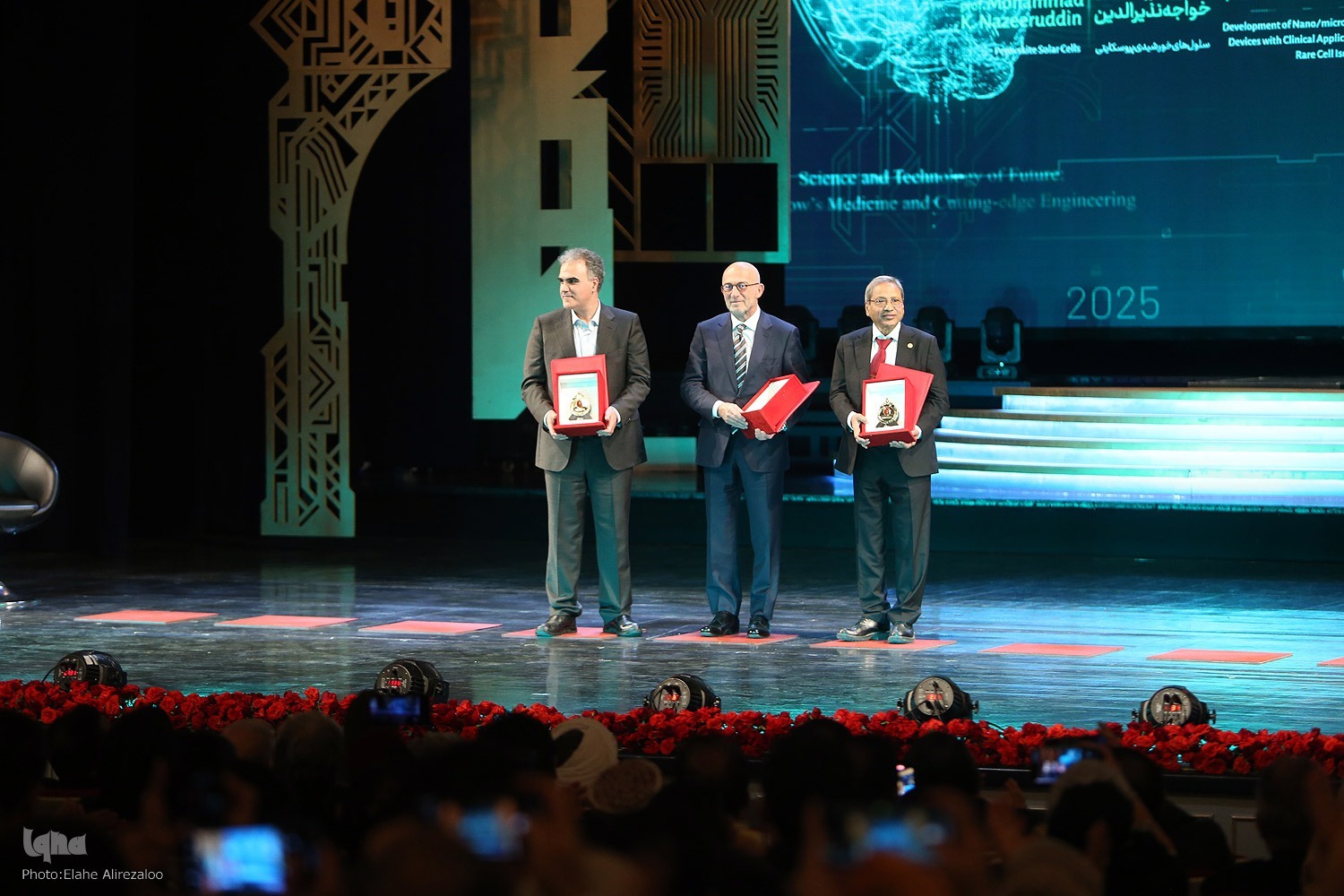Indian, Turkish, Iranian Scientists Named 2025 Mustafa Prize Laureates

They were awarded for their pioneering contributions to perovskite solar cells, microfluidic rare-cell detection, and graph algorithms.
At a ceremony held on 8 September at Tehran’s Vahdat Hall, officials, academics, and scientists from the Islamic world gathered to honour the 2025 Mustafa Prize laureates.
The event featured performances by Iran’s national orchestra and musical ensembles from India, Turkey, and Iran.
The awards were announced by Mahdi Safarinia, CEO of the Mustafa Science and Technology Foundation and Secretary of the Prize’s Policy Committee, with introductory remarks from Ali Akbar Salehi, Chair of the Scientific Committee.
About the Laureates
Mohammad K. Nazeeruddin of India was awarded in Basic and Engineering Sciences for innovations in perovskite solar-cell technology. He expressed gratitude to mentors, colleagues, students, his alma maters, and his family for their support throughout his career.
He emphasized that his work addresses the vital challenge of clean energy and encouraged aspiring scientists across the Islamic world to remain curious, determined, and diligent.
Watch:
Mehmet Toner, representing Turkey, received the Award in Life Sciences and Medicine for his development of nano/microfluidic devices aimed at isolating rare cells.
Toner reflected on his early academic years at Istanbul Technical University, where two professors taught him the importance of asking the right questions. His microfluidic chip technology now aids in cancer detection and finds applications in brain health, tissue regeneration, and neurovascular studies.
Vahab Mirrokni of Iran, honoured in Information and Communication Science and Technology, was recognized for his work on locality-sensitive hashing and large-scale graph algorithms.
Speaking in Persian, he thanked his mathematician father and his mother, who instilled in him the values of following the Prophet’s path. He noted the importance of sharing scientific research within the community and stressed that diversity in research teams is essential.
As a migrant scientist, he urged students to persevere, and aligned with former laureates Ugur Sahin and Omid Farokhzad, donated his cash award to the Young Scientist Medal initiative.
Selection Process
At the closing ceremony, Salehi outlined the selection process: from a public call in February 2024, to over 5,200 nominations across three categories, to a shortlist of 24, evaluated by 100 international scientists, leading to the final selection of three laureates.
He also announced that the Young Scientist Medal was awarded for the first time to three researchers from Iran, Malaysia, and Turkey, reflecting the Prize’s growing emphasis on emerging talent.
Read More:
The Mustafa Prize is a biennial science and technology award launched by the Mustafa Science and Technology Foundation under the Organization of Islamic Cooperation framework. It seeks to acknowledge outstanding scientific achievements from the Islamic world that have societal impact.
Laureates receive a cash award, a medal, and a diploma. The Prize spans categories including Information and Communication Science and Technology; Life and Medical Science and Technology; Basic and Engineering Sciences; and Nanoscience and Nanotechnology, with eligibility extending to scientists of any faith working in Islamic countries, and to Muslims globally.
Source: Mustafa Prize Website



